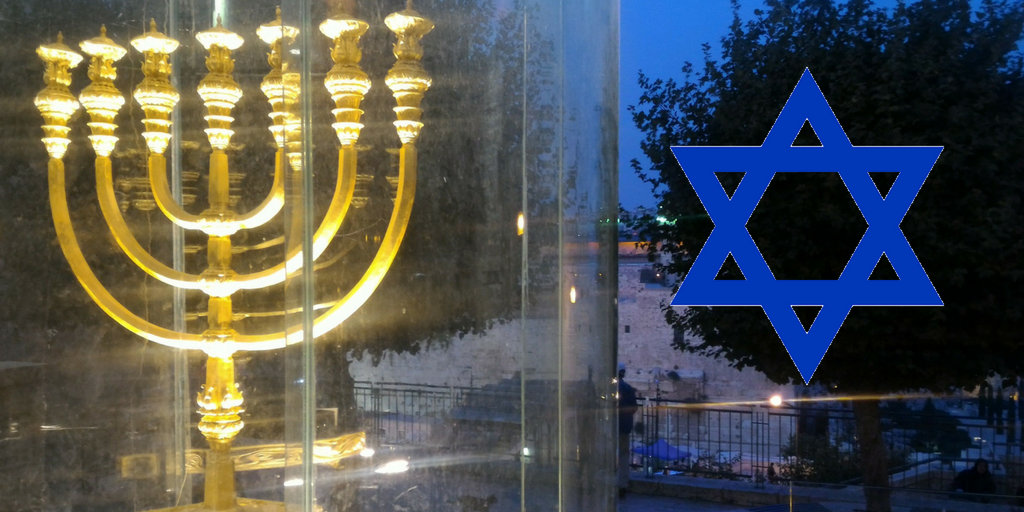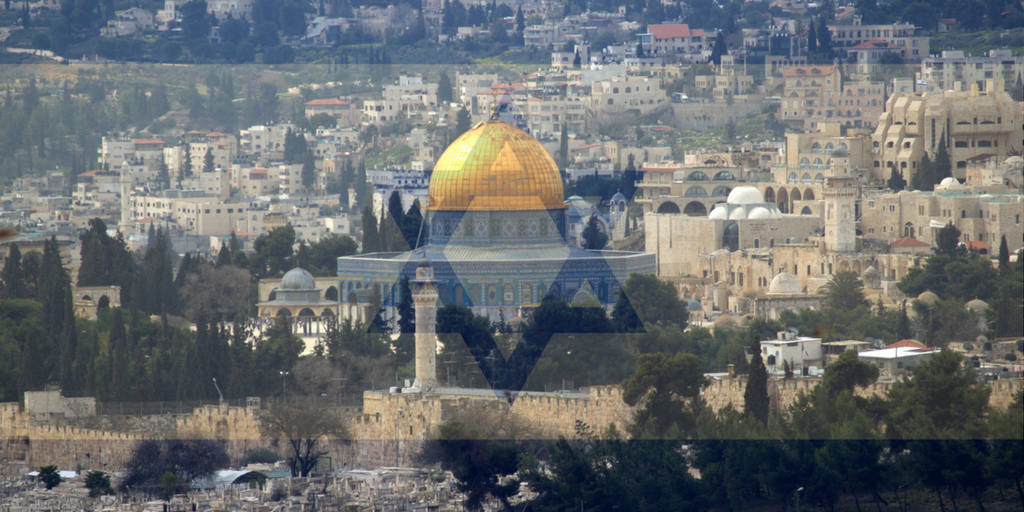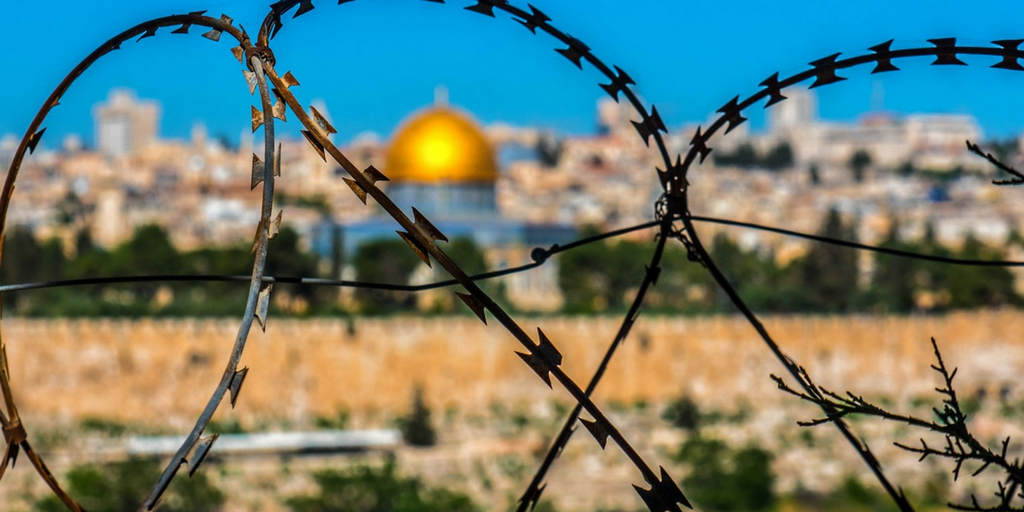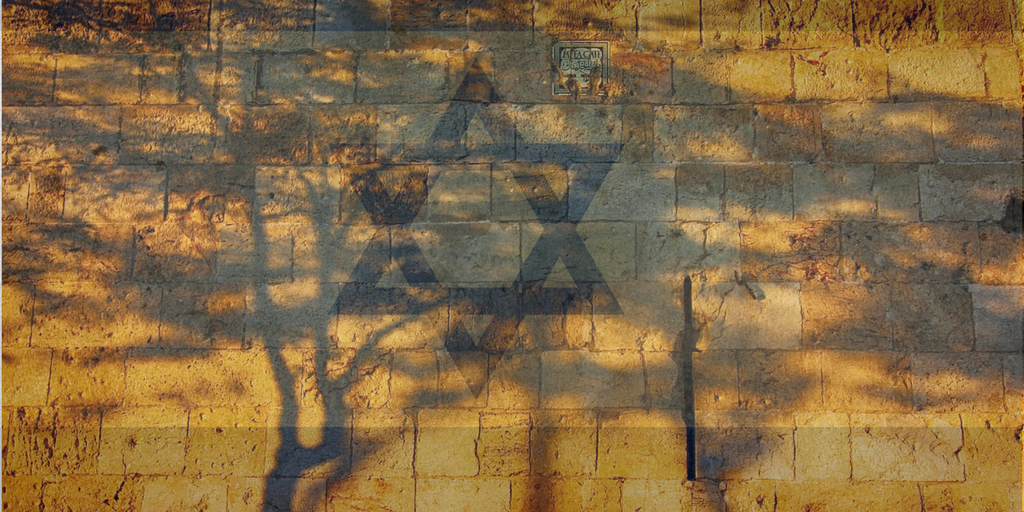Hebraic Republic: A secular democracy with a Jewish majority.
Judaic State: A polity (with a Jewish majority) based on Judaism.
Recently, Israel’s High Court of Justice decided in favor of the Tel Aviv-Jaffa municipality in its effort to expand venues open to the public on Shabbat, permitting mini-markets—164 convenience stores and kiosks—to operate on the Jewish Sabbath.
Israel’s Interior Minister called the ruling a “serious blow to the holy Shabbat and the character of the Jewish people”; the Religious Affairs Minister, referring to the High Court justices, averred that “they have no idea what the value of Shabbat is in the Jewish state….Unfortunately, in the Jewish state, the High Court has brutally trampled the Sabbath, and will not be forgiven”; and the Health Minister decried “the continuation of vulgar legal meddling with the values of religion and religious law”.
The landmark ruling sharpens into focus the paramount matter of the State of Israel’s character.
The Better Question
If today the perennial question for Israel enthusiasts is, “What is the State of Israel first, Jewish or democratic?”, then the answer should be, “Wrong question”.
Staging a tension between these two attributes presents a false choice, a confused comparison of apples and oranges. But great consequence attaches to the fine distinction between a state that is Jewish (of Jews) and a state that is Judaic (of Judaism). In modern layman’s terms, should the Third Jewish Commonwealth, the State of Israel, be kosher or kosher-style?
Happily, there is an intrinsic incompatibility neither between democracy and Jewry nor between democracy and Judaism (which, in fact, features several important principles that we nowadays identify with Western liberal democracy).
Yet a number of frequently amplified (because overtly controversial) Jewish authors, including some careful to self-identify as Zionist, who regard the Israeli-Palestinian conflict effectively as a morally-equivalent agon between Jewish irredentists vs. Arab revanchists, would have the State of Israel exist as a Hebraic republic, which is to say as a secular democracy like any other except for its Jewish majority, and perhaps with the additional caveat of Hebrew as the official national language. The latter stipulations should not mislead anyone into believing that a Hebraic republic would be anything other than a state of its citizens, rather than a nation-state.
Lucid thinkers will have little difficulty recognizing the undeniable dangers of such intellectual malpractice: demographically, a Hebraic republic could in short order become an Arabic republic, governed and dominated by Arabs by virtue of their greater numbers, which means Jews would once again become a minority and no longer control their own destiny or ensure their safety (with the Hebrew language, by the by, swiftly going the way of all things). So the idea of a Hebraic republic, a.k.a. a Jewish state, is not merely deflationary with respect to traditional Jewish aspirations, but antithetic to the State of Israel’s raison d’etre and pragmatically self-eradicating.
Why would any Jew sound of mind propound such a notion? Frankly, those advancing the idea are often diasporic Jews from English-speaking countries (America, Canada, South Africa, etc.) who would remake the State of Israel in their own image and likeness, more suited to their tastes and ideologies which are invariably secular, socialist, multicultural, and radical. In specific cases, where the proposers hail from binational hotbeds such as Canada’s “distinct society” of Quebec or the onetime apartheid South Africa, there is evident historical-political baggage informing their calculi; sensitized consciences would have them steer the State of Israel toward maximal integration of minorities and the goal of ultimate cohesion at all costs, thereby immunizing the country against outside criticism, particularly criticism regarding human rights issues. Certain proponents of the Hebraic republic paradigm, for whom settlements in the heartland of the Jewish ancestral homeland are Israel’s addictive cocaine, for whom Judaism is somehow supremacist, are die-hard Marxists willfully disregarding the memo of a generation ago confessing that communism’s praxis was a gross failure and its theory discredited.
Some Israeli Knesset members, doctrinaires and politiques past and present, have likewise promoted Hebraic republicanism. Due to the particulars of their upbringing, they have primarily identified themselves as Israeli, not as Jewish, and as secular atheists or agnostics intentionally disinherited their religio-spiritual heritage, preferring instead to live within an ordinary country of no specific people, with no especial destiny, whose history might as well have commenced in 1948.
Déjà Vu All Over Again
As a people, Jews have seen this story before, more than once, in fact. Hebraic republicans share much in common with the Hellenist Jews who lived in Judea during the Hellenistic era (332-63 BCE), who began by attending the gymnasium and hiding their circumcisions, then escalated to sedition, repeatedly betraying their country and countrymen to foreign imperialists until the successful Maccabean Rebellion. Hebraic republicans are of the same ilk, too, as the German founders of Reform Judaism in the early 19th century who wished to remake the religion of their forefathers and foremothers in their own image and likeness to suit their newly enlightened tastes, for whom observing differently as private individuals was not enough, who instead wanted all Jews to observe differently and despite that drastically different observance to nonetheless be considered practitioners of genuine Judaism, notwithstanding all evidence to the contrary. The likes of all these engender a greater appreciation in traditional Jews for Christians, who at some point, at least, had the honesty of character and intellectual coherence to realize that what they were promoting was so far from the original instantiation that they would have to become a new and separate thing, and not pretend that they were still dwelling in the same time-honored tent as their forebears.
But the most important thing Hebraic republicans do not comprehend—or refuse to accede to—is the original reason for being of a state established by Jews: to constitute themselves in the Promised Land as a godly people whose mission is to attest to the divine and under divine sovereignty to perfect the world.
The Nature of a Judaic State
What, then, is a Judaic state supposed to look like? Is the State of Israel a Judaic state?
Fundamentally, a Judaic state must be inspired and guided by the constitution of the people of Israel: the Tanakh (Torah/Pentateuch-Nevi’im/Prophets-Ketuvim/Hagiographa), as interpreted by the Talmud and later generations of Sages. The Tanakh is taken and laid as the foundation of the structure that becomes the Jewish nation-state, not merely a state of its citizens. The Tanakh itself, however, cannot be the verbatim constitution of a Judaic state for two imperative reasons:
- a) The Tanakh prescribes social legislation, emphasizing the societal, not the political; it determines the makeup of Israelite society, not of an Israelite state, and is primarily concerned with religious principles, not political procedures. When it comes to the practical political affairs of electoral systems, methods of representation, legislative procedures and protocols, etc., the Tanakh is disinterested if not uninterested.
- b) The Written Law (Tanakh) was always traditionally mediated (except over time for sectarian Samaritans, Sadducees, and Karaites) by the Oral Law (Talmud), and so cannot be applied literally as is. Only a Tanakh interpreted by exegetical Sages over the course of the millennia could be deemed accurate, authentic, and authoritative.
The Tanakh’s intent is to provide a divinely devised blueprint for the construction of an ideal society, and the very fact that it focuses on fostering a society and not a polity suggests that the society is the core edifice, the state merely the scaffolding. A people requires a form of governance, not necessarily a state. This fine distinction is precisely what allowed the Jewish people to survive its many lengthy exiles as a nation sans its nation-state.
With few exceptions, such as the convening of an assembly of 70 tribal elders and the appointment of magistrates over thousands, hundreds, fifties, and tens, the Tanakh leaves open the configuration of civil affairs at the operational level. Clearly, though, the nascent Jewish nation was led by singular figures: Moses, then Joshua. Should a Judaic state, then, be governed as a monarchy? Ideally not, but perhaps. Should it function as a democracy? Not necessarily, but probably. Democratic elements were enshrined in Judaism for nearly a millennium before classical Greeks devised their embryonic and highly limited form of democracy: popular representation, separation of powers (not to be confused with separation of religion and politics), decentralization and delegation of responsibility, an independent judiciary, women’s property rights, and so forth.
Put simply, a Judaic state is democratic because Judaic.
Historical Recap of Judaic Statehood
In its capacity as a nomothetic pandect, the Tanakh is replete with divinely ordained legislative edicts. Israelite society during the Exodus was governed by what the Jewish priestly historian Joseph ben Matityahu (Josephus Flavius) would in the Roman era, in his refutative Against Apion, term in Greek a “theokratia” (theocracy). God alone was the head of state (initially, more precisely, of the Israelite state-in-the-making). Moses—prophet, lawgiver, faithful shepherd—was politically the overworked head of government, an ecclesiastical authority of one, at least for starters. Bottom line: God was the ruler, Moses the mouthpiece.
Was this intended to be the political ideal for Israel? Joshua succeeded Moses under the same arrangement. Then the period of the Judges arrived, in which tribal elders who were regional notables arose to govern parts of the Land of Israel, in all likelihood several of them reigning concurrently in discrete districts as the popular need demanded. They were kinglets in all but name; one of them, the short-lived Avimelekh ben Gidon, assumed the royal title to boot. But then the tribal federacy that was Israel recognized the necessity for a national monarch who would rule them like other nations were ruled, in a united and stable polity better positioned to advance the national interests and defend against or deter its foes.
Thus did constitutional monarchy become a permanent feature in Israel and endure throughout the United Monarchy of Saul, David, and Solomon, as well as the foreshortened Kingdoms of Israel (d. 722 BCE) and Judah (d. 586 BCE). At times Israel existed as a Judaic state where Judaism was the law of the land—e.g. during the reigns of David and Solomon, during the traditional revivals of Jehoshaphat, Hezekiah, and Josiah—though most often Judaic law was observed in its breach by idolatrous sovereigns and backsliding inhabitants influenced by heathen neighbors.
Autonomy Replaces Sovereignty
From the return from Babylonian Captivity (538 BCE), and for the next 434 years, the Jewish people had no king. Jews were autonomous but not sovereign in the Persian era (539-332 BCE) and in the aforementioned Hellenistic era until persecution under the Seleucid (Syrian-Greek) ruler Antiochus IV Epiphanes (r. 175-164 BCE) and his immediate successors. The Maccabean Rebellion restored sovereignty and established the Hasmonean dynasty of priestly rulers who eventually assumed the title of king or queen. Inasmuch as they ruled according to Judaic tradition, the Maccabee brothers (Judah, Jonathan, Shimon) reestablished, and the Hasmonean dynast Johanan Hyrcanus preserved, a Judaic state. The warlike King Yannai Alexander (Alexander Jonathan), by contrast, veered markedly from a traditionalist approach and cannot be considered to have sustained a Judaic state. The Hasmonean civil war between his sons Judah Aristobulus II and Hyrcanus II was taken advantage of by Rome, which annexed Judea to its burgeoning empire, and once again Jewish sovereignty was forfeited. Judaic states briefly arose anew, however, in both the late Hellenistic era under Queen Shlomtzion (Salome Alexandra; 76-67 BCE), and in the Roman era under King Agrippa I (41-44 CE) then Shimon Bar Kokhba (132-135 CE). These were indeed golden ages for the Jews, especially considering what fateful events followed in their wake.
Fully 1,813 years of excruciating exile ensued for Jews as a people, a stateless nation with but a vestige continually lingering under dire conditions in its occupied nation-state. For almost two millennia Jews were dispersed and subjugated by foreign peoples, at worst at the mercy of violent others, at best guests of volatile hosts. It is, although, glaringly ignorant to assert that Jews exited the stage of history, and even Jewish polities emerged over the millennia in numerous surprising and far-flung locales: Adiabene (Assyria), Himyar (Yemen), Aures Mountains (Algeria), Khazaria (Caucasia), Semien and Sallamt (Ethiopia), Birobidzhan (Russia), and elsewhere. Some of these were not only Jewish states but Judaic states as well, although none of them comprised a majority of world Jewry nor were any in the ancestral homeland, the Land of Israel.
Importing An Alien Idea Born in Exile
Since the conversion of Emperor Constantine in the fourth century CE and the Edict of Thessalonica (380 CE) making Christianity the imperial religion, for centuries power was vested in an individual whose jurisdiction extended across borders physical and political: the Bishop of Rome, who was the fatherly Pope and priestly Pontiff (derived from the Roman high priest’s title of Pontifex Maximus). Separation of church and state was deemed necessary and preferable due to corruption of the Roman Catholic Church and egregious abuses of its jealously guarded powers. But this sacred cow of a concept should not be sacrosanct for non-Christians since it is a foreign import and is not universally relevant across time or space. Especially a Judaic state, whose original incarnations hark back to the ancient and classical epochs, should not today be artificially constrained by the dogmatic division between religious and secular domains in much later, non-Jewish commonwealths.
Christendom lacked the crucial separation of powers or leadership roles that Judaism featured from the outset: the prophet or prophetess was the moral/spiritual leader, the high priest the sacerdotal/pedagogical leader, and the judge, king, or queen the political/military leader. Each kept the other in check. While the high priest was the primary religious figure, all three would be correctly described as religious leaders and their duties often impinged on one another. Divine law incorporated religious, civil, and military matters. There was no such thing as a secular leader because there was no such thing as a secular state: priests were authorized to judge and to appoint tribal elders to adjudicate cases as well; the high priest assisted in the political task of allocating the Israelites’ tribal territories; kings consulted prophets, sometimes even by venturing to entreat them, to ascertain the divine will vis-à-vis political and military affairs; the king was adjured to indite a personal copy of the Torah from that of the priests and Levites and commanded to keep it close at hand and read from it daily all his life in order to instill humility, reverence for the divine, and obedience to divine law. Initially, the king was subservient to the high priest, who represented the Torah, but was later, in the wake of Eli the Priest’s wayward sons, given the right to appoint the high priest. Whereas priesthood and kingship relied on lineage, prophecy did not.
After the last prophet, Malachi, and the advent of Ezra the Scribe, a second Moses, the rabbinical Sages inherited the moral/spiritual leadership role of the prophets and expropriated the teaching role, biblically ordained for high priests and priests generally, during the Persian era. Thenceforward, in the absence of Jewish kings and prophets, high priests were compensated with increasing political clout, though this arrangement ceased with the destruction of the Second Temple. Since the subsequent fall of Bar Kokhba’s Judaic state in 135 CE, Judaism survived only by virtue of the preservation of the Tanakh and Talmud, all the while its practitioners consensually governed communally by a “sage-ocracy” in which merit (comprising breadth and depth of learning, wisdom, and rectitude) reigned.
As an idée fixe, separation of religion and politics is perhaps apropos nowadays for a multicultural/pluralistic secular democracy, a state of its citizens from all religious backgrounds or from none. In reality, though, even such ostensibly irreligious states routinely accept religion-creep, whether in their coinage, emblems, anthems, or leaders’ keynote addresses. But if Israel is not meant to establish a godless republic for statehood’s sake, then separation of religion and politics plainly does not pertain and will not avail.
As a polity with a peculiar heritage, the State of Israel is special; it requires a religious dimension and a political dimension, and at issue is the optimal orchestration and choreography of these complementary elements.
Today the State of Israel is a hybrid commonwealth, partly Hebraic, partly Judaic, no longer staunchly socialist as were many of its founders and national institutions. Both those who would have a Hebraic republic and those who long for a Judaic state are ready to herald the dawn of the State of Israel’s next stage; they only dispute the preferred nature of the nation’s evolution. So the question becomes one of direction: which way is Israel headed? Towards a Hebraic republic without special premise or purpose, or towards fulfilling the age-old promise of the Jewish people?
Anyone who earnestly yearns for a Hebraic republic is in luck, because one exists: the United States of America. Its patriot founders established, and their Puritan predecessors envisaged, a democratic commonwealth based on the biblical principles of freedom, justice, equality of persons, law and order, moral-ethical conduct, and the sanctity of life. At one point Hebrew was considered for the official national language of their New World start-up, and Benjamin Franklin proposed that Moses grace the emblematic Great Seal of the United States. The United States of America was imagined and realized in large part by devout Biblicists and fervent Hebraists of the Christian persuasion; Jews for whom this suffices should and do seek fulfillment within its borders.
But a Judaic state America is not, and was not meant to be: America strives to be exceptional; Israel was designed to be exemplary.
Israel’s Covenantal Character
Notionally, the polity of the Jews was designed to be sui generis: Judaic in its premise; democratic in its process. The objective of the Jewish people establishing an independent, sovereign commonwealth in the biblical epoch, and reestablishing the same in the Hasmonean period, was not to add just another ethnic nation-state to the bustling Near East, but to found the framework for a kingdom of priests and a holy nation. Should the point of the Jewish people reestablishing a commonwealth in the modern era be to add just another secular democracy to the world, essentially identical to every other?
Whereas the advent of the Third Jewish Commonwealth in 1948 was seen as a remarkable resurrection by gentiles and secular persons, for most traditional Jews it signaled no less than divine validation and Judaic vindication, a triumph over history’s arbitrary vagaries and vicious vicissitudes.
As of 2017, according to Israel’s Central Bureau of Statistics, there are 14.411 million Jews worldwide; the largest global Jewish community of 6,484,000 or roughly 45% lives in Israel. Most Jews the world over—hardly renowned for their eagerness to agree—can nonetheless minimally assent to the following: Jews must be sovereign; they must control their own destiny and assure their own individual safety and national security; they must be able to observe Judaism freely, to the extent that they feel compelled to do so. With respect to the State of Israel, a polity that is foundationally and structurally more Judaic, and not less, that is true to itself by inheriting its heritage, and not abjuring it, is the best way to achieve all of the above criteria and strengthen Jewish identity, thereby serving the wider world as a light unto the nations.





